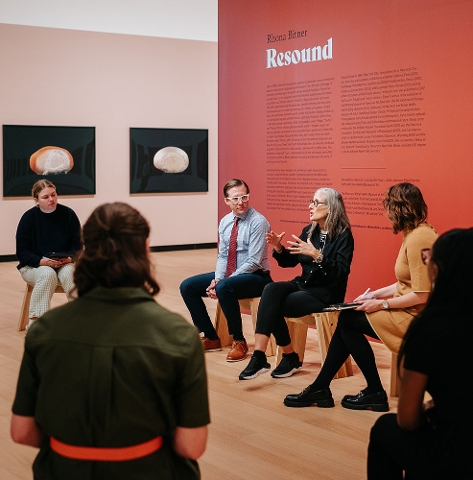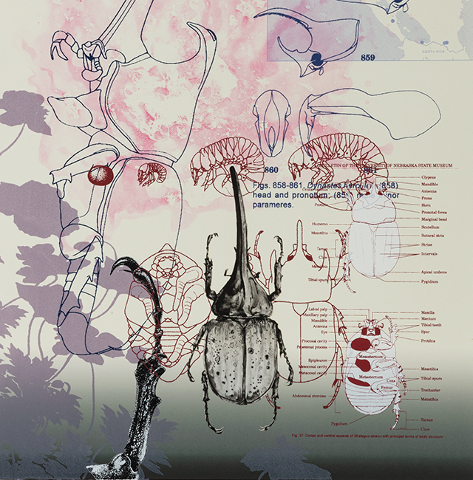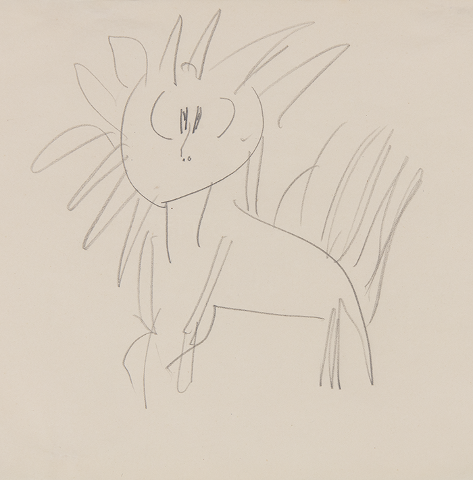Images courtesy of the Ruth and Elmer Wellin Museum of Art at Hamilton College.

Over the last decade, artists and publishers have fought many court battles concerning the practice of fair use in the visual arts. Fair use is a right that publishers reserve to reproduce images of artwork for research, cultural commentary, or educational purposes-just not commercial. The outcome of many recent court battles have favored the publishers practicing under fair use. In spite of these victories, many publishers, fearing lawsuit from artists, have avoided reproducing art.
The ability for a museum, like the Wellin, to reproduce and distribute images of the artwork is crucial to art education. The Wellin regularly reproduces images in catalogues, brochures, presentations, and on its recently-launched online collection database. These images are used to educate Hamilton students, K-12 students from the local community, and the general public about art.
Last semester as part of my work-study position at the Wellin, I researched copyright and fair use laws, and I focused on two organizations in particular, the Artist Rights Society (ARS) and Visual Arts and Galleries Association (VAGA).
ARS and VAGA provide member artists with a licensing service that collects royalties on the artist's behalf from publishers that wish to reproduce their work. In some case, ARS and VAGA charge fees and restrict image usage and availability. I personally believe that sometimes these regulations can hinder educational material from reaching the public, which, in my opinion, is a societal and cultural loss. However, licensing firms do offer security and protection to artists to ensure their proper payment and recognition.
It is my belief that the best way to navigate these laws is to find a compromise between ensuring that material reaches the public for education, while also giving the artists well-deserved credit. The Wellin achieves this through publishing not-for-profit educational materials that serve both to bring publicity to the artists and knowledge to the public.






